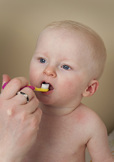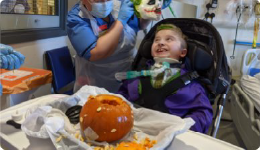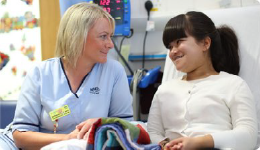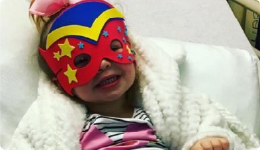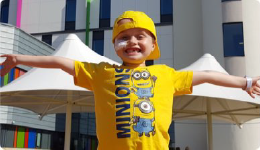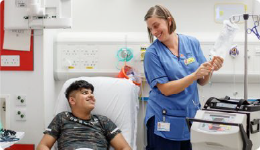12-13 Month Immunisations
It is time for your baby's next round of immunisations. These should be given within a month of their 1st birthday.
Remember to take your red book with you to the appointment.
Your child will receive the following vaccines:
- MenB helps protect your baby against meningococcal group B infection.
- Pneumococcal helps to protect your baby against pneumococcal disease.
- MMR helps to protect your baby against measles, mumps and rubella (German measles).
The immunisation pages of NHS Inform includes information on when and why you should immunise your child, and what to expect after immunisation.
Public Health Scotland have produced a Protect your child against serious diseases guide. This booklet is provided by your Health Visitor within the first two weeks of your baby being born and will help you over the next five years of your child’s own immunisation journey. This is also available in other languages.


 Every child grows and develops in their own time. If you are worried about your child's development then speak to your Health Visitor, Family Nurse or GP.
Every child grows and develops in their own time. If you are worried about your child's development then speak to your Health Visitor, Family Nurse or GP.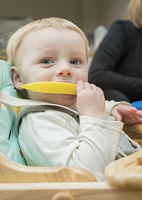 You can now chop food into a manageable size for your baby. Continue to offer healthy foods at mealtimes for all the family. Continue to offer healthy snacks such as finger-sized sandwiches, toast, cheese, well cooked egg, chicken, fish and slices of fruit and vegetables.
You can now chop food into a manageable size for your baby. Continue to offer healthy foods at mealtimes for all the family. Continue to offer healthy snacks such as finger-sized sandwiches, toast, cheese, well cooked egg, chicken, fish and slices of fruit and vegetables.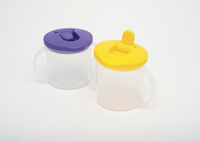
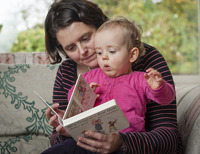 Your baby is getting more skilled at using their hands to interact with their world. Your baby can stack two building blocks. They can put objects into a container but still enjoy emptying them out.
Your baby is getting more skilled at using their hands to interact with their world. Your baby can stack two building blocks. They can put objects into a container but still enjoy emptying them out.